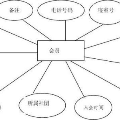We introduce a new consistency-based approach for defining and solving nonnegative/positive matrix and tensor completion problems. The novelty of the framework is that instead of artificially making the problem well-posed in the form of an application-arbitrary optimization problem, e.g., minimizing a bulk structural measure such as rank or norm, we show that a single property/constraint: preserving unit-scale consistency, guarantees the existence of both a solution and, under relatively weak support assumptions, uniqueness. The framework and solution algorithms also generalize directly to tensors of arbitrary dimensions while maintaining computational complexity that is linear in problem size for fixed dimension d. In the context of recommender system (RS) applications, we prove that two reasonable properties that should be expected to hold for any solution to the RS problem are sufficient to permit uniqueness guarantees to be established within our framework. Key theoretical contributions include a general unit-consistent tensor-completion framework with proofs of its properties, e.g., consensus-order and fairness, and algorithms with optimal runtime and space complexities, e.g., O(1) term-completion with preprocessing complexity that is linear in the number of known terms of the matrix/tensor. From a practical perspective, the seamless ability of the framework to generalize to exploit high-dimensional structural relationships among key state variables, e.g., user and product attributes, offers a means for extracting significantly more information than is possible for alternative methods that cannot generalize beyond direct user-product relationships. Finally, we propose our consensus ordering property as an admissibility criterion for any proposed RS method.
翻译:我们提出了一种新颖的一致性方法,用于定义和解决非负/正矩阵和张量恢复问题。该框架的新颖性在于,我们不是通过人为地将问题形式化为任意优化问题,例如最小化例如秩或范数的大块结构度量,而是显示单个属性/约束:保持单位尺度一致性,确保解的存在性和,在相对较弱的支持假设下,唯一性。框架和解决算法还直接推广到任意维张量,同时保持计算复杂度,对于固定维度d,这种复杂度是与问题规模线性的。在推荐系统(RS)应用的背景下,我们证明了对于任何RS问题的解决方案应具有两个合理的属性,以便确保在我们的框架内可以建立唯一性保证。关键的理论贡献包括带有证明其性质(例如一致性顺序和公正性)的通用单元一致张量恢复框架,以及具有最佳运行时间和空间复杂度的算法(例如O(1)项恢复)和预处理复杂度,这在矩阵/张量知道项的数量方面是线性的。从实用角度来看,该框架无缝地能够推广到利用关键状态变量(例如用户和产品属性)之间的高维结构关系,这为提取的信息提供了一种手段,该信息比那些不能超越直接用户-产品关系的替代方法更多。最后,我们提出了共识排序属性作为任何RS方法的准入标准。



